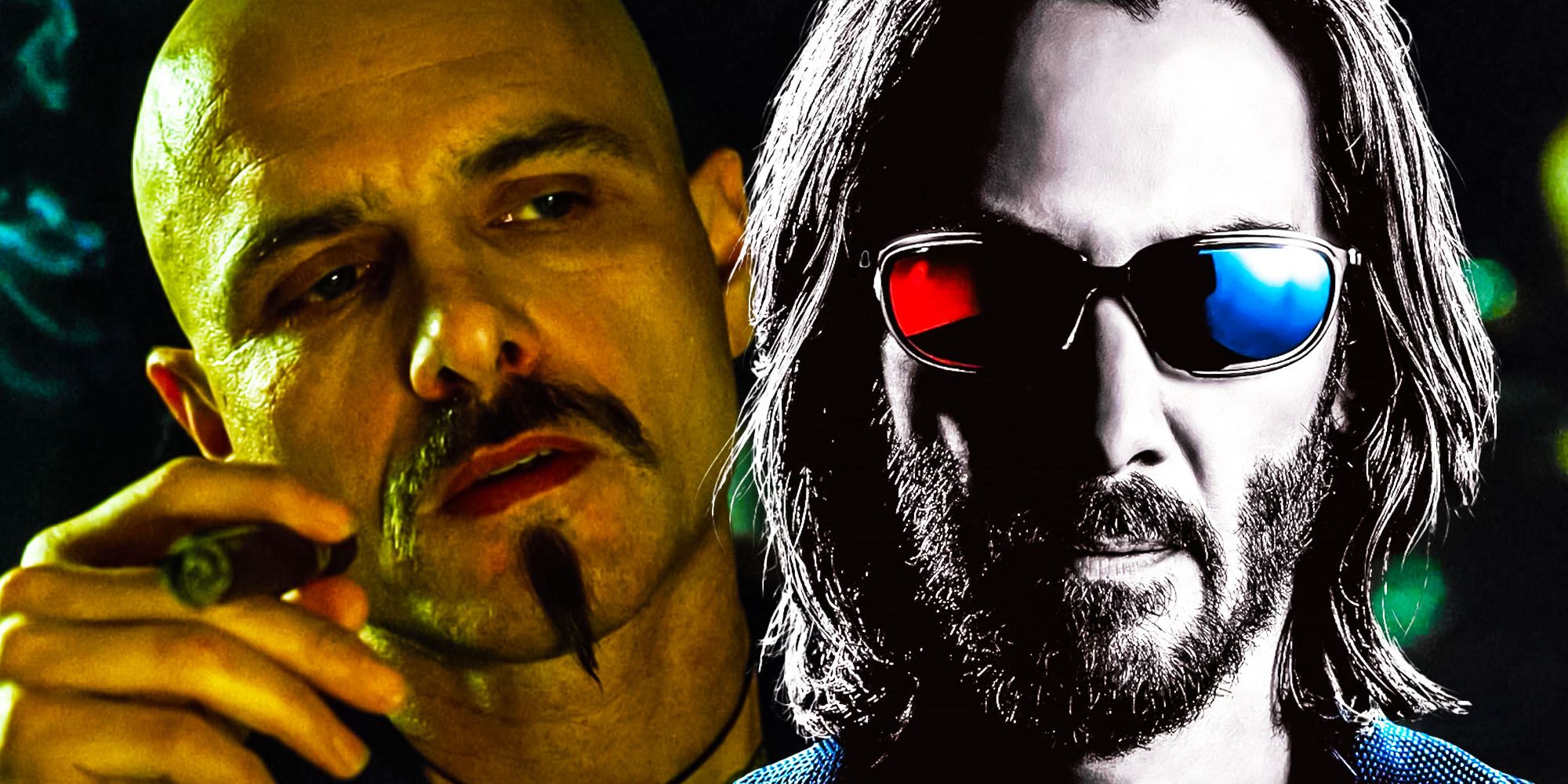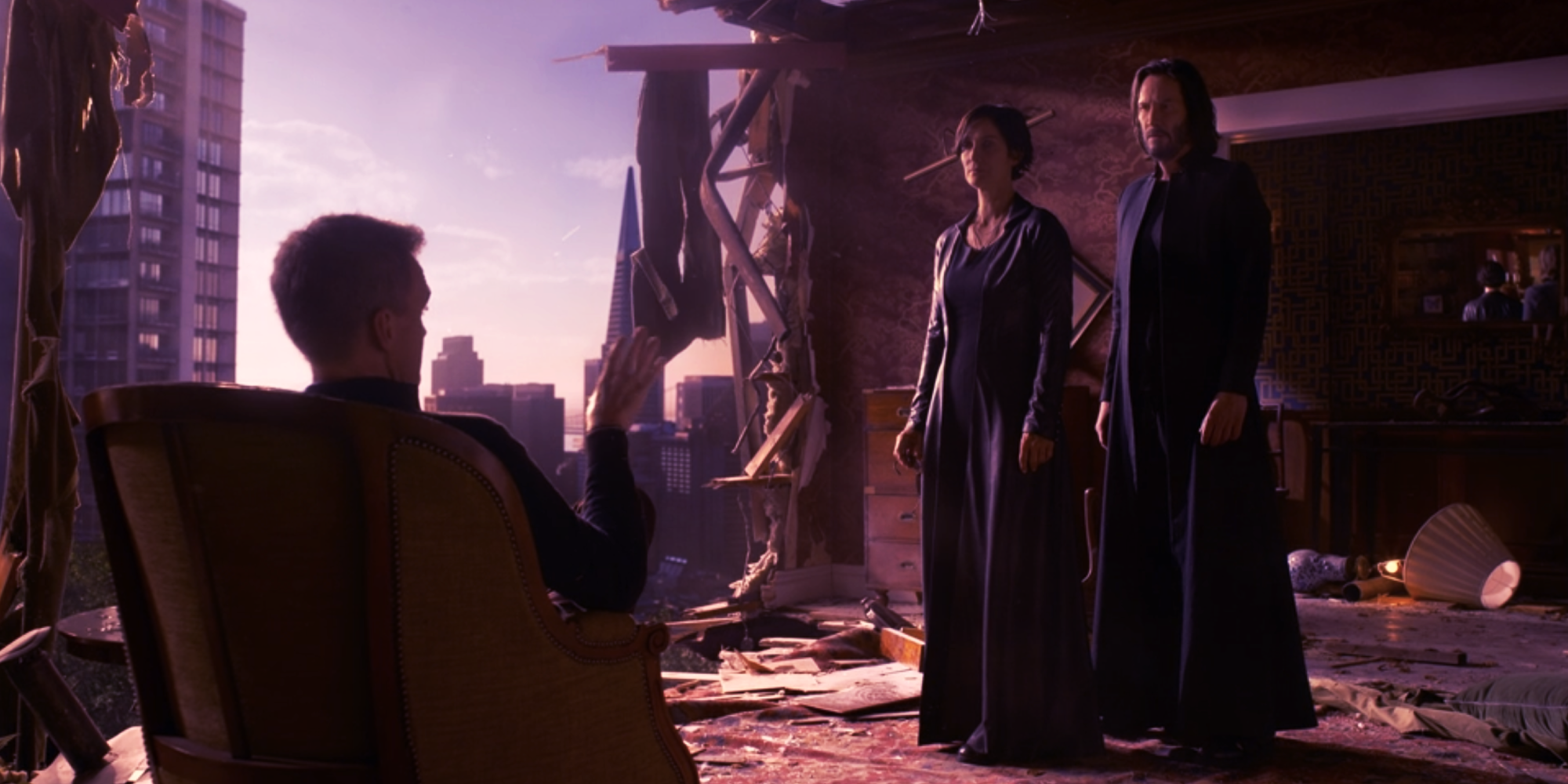A clever Matrix Resurrections Easter egg suggests Neo actually agrees with The Analyst's perception of human nature on some (very) deep level. Every main, breathing character in 1999's The Matrix - your Neos, Trinities, Morpheuses, etc. - chose to be free by selecting the red pill, and they all fight valiantly against the Machines for Zion's liberation. Joe Pantoliano's Cypher presents the other side of that argument. He took the red pill but very much regrets doing so, and sells out Morpheus' crew in exchange for a one-way ticket back to the Matrix.
Cypher's ilk have apparently become more common in the 60 years since Neo's truce. When Keanu Reeves' returning hero is shepherded to his cell by Sheperd in The Matrix Resurrections, the Io captain remarks, "Everything was simpler back then, people wanted to be free. It’s different now." Mankind's new attitude toward liberty is all down to The Matrix Resurrections' new antagonist, The Analyst and, defeated by Neo and Trinity in the final scene, Neil Patrick Harris' villain cries, "Sheeple aren’t going anywhere. They like my world.... They don’t want freedom or empowerment, they want to be controlled. They crave the comfort of certainty." The Analyst's words in this scene echo Cypher's pro-simulation beliefs, and a Matrix Resurrections Easter egg proves their philosophy is scarily accurate - because even Neo subconsciously agrees fiction is sometimes better than real life.
When Cypher betrayed Morpheus in The Matrix, he met Agent Smith at a fancy restaurant and delivered a poignant meat-themed monologue. Holding a piece of succulent steak to his mouth, Cypher acknowledged the meal's digital nature, and admitted the Matrix tells him how delicious it is... before affirming "ignorance is bliss" and gleefully taking a bite. The Matrix Resurrections nods to this moment with a top-draw Easter egg. During the "White Rabbit" montage (before Neo properly wakes up, but after his suspicions have been aroused), Keanu Reeves is seen chomping on steak carnivorously. The shot's framing is clearly intended to mimic The Matrix's restaurant scene, drawing a parallel between Thomas Anderson and Cypher's "ignorance is bliss" outlook.
More than just another throwback, The Matrix Resurrections' steak scene suggests Neo sort-of buys Cypher's belief that fantasy trumps reality - at least a little. Neo's repressed memories recognize Trinity (or, indeed, "Tiffany") in their local coffee shop - maybe Trinity is to Neo what steak is to Cypher. In the simulation, Thomas Anderson gets to see Trinity every day from afar - as per The Analyst's design. In reality, Trinity is dead. Does some part of Neo wish to ignore his creeping suspicions of being plugged into the Matrix, so he can continuing enjoying the medium-rare sirloin of seeing Trinity each time he visits Simulatte?
Ultimately, of course, Neo opts for reality over a cage of 1s and 0s, but most humans lack his steely determination and moral fortitude. Neil Patrick Harris' Analyst validated humanity's fictions with feelings (and vice versa), and succeeded in attaining that coveted "zero resistance" acceptance rate. The proof is in the Merovingian's orgasmic pudding - mankind is full of Cyphers, not Neos. According to The Matrix Resurrections' arch-villain, the only reality that matters is inside one's mind, irrespective of facts - Lana Wachowski's commentary on how the world's social-political climate has changed since 1999. Neo copying Cypher's steak scene symbolizes how accurately The Analyst perceives humanity. Ignorance is so enticing, even The One is tempted by a juicy cut of digital temptation. What hope do regular humans have of resisting if even Neo can't fully deny Cypher had a point?


